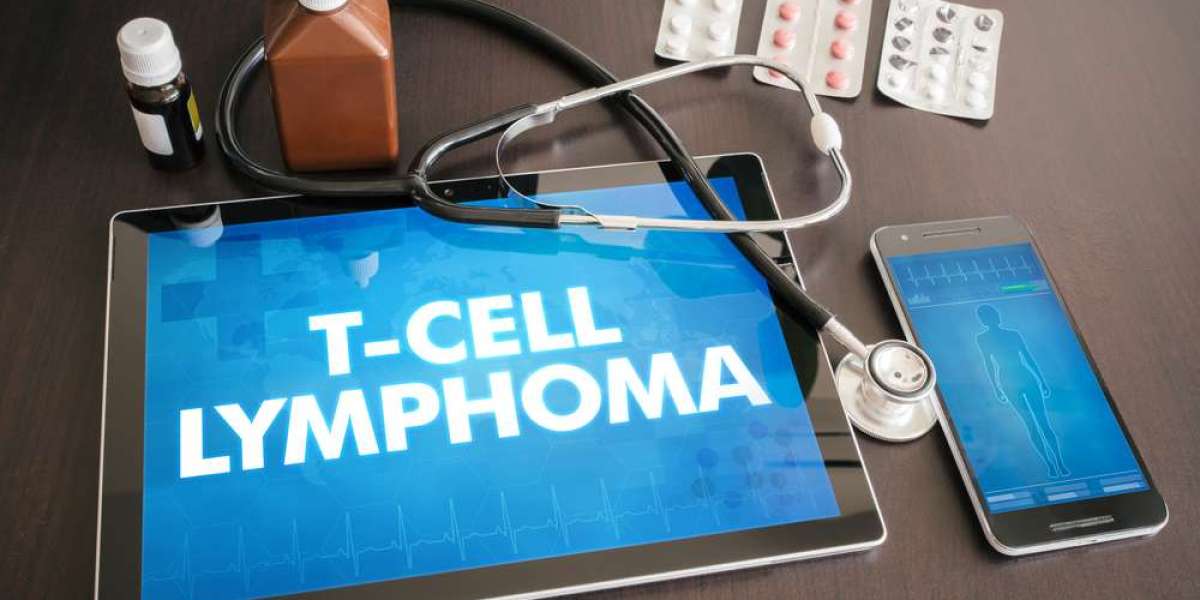T-Cell lymphoma is a rare and serious cancer that can develop in various parts of your body, including the skin, lymph nodes, and organs.
Recognizing T-Cell lymphoma symptoms early is critical for a better prognosis and more effective treatment.
This blog will help you identify common signs to watch out for and explain how T-Cell lymphoma is diagnosed. We'll also explore why timely detection and diagnosis matter.
Whether you're concerned about your health or want to understand this condition better, read on to discover important insights about T-Cell lymphoma.
What is T-Cell Lymphoma?
Before diving into the symptoms, let’s start with what T-Cell lymphoma is.
T-Cell lymphoma is a cancer that originates in the T-cells of your immune system, specifically the lymphoid tissue. These T-cells play a vital role in fighting infections and regulating the immune response. When T-cells become cancerous, they can grow uncontrollably, leading to lymphoma. There are many types of T-Cell lymphoma, but they all fall under a broader category known as non-Hodgkin lymphoma (NHL).
While lymphoma in general refers to cancer in the lymphatic system, T-Cell lymphoma is unique in its cellular origin. Unlike B-cell lymphoma, which originates from B-cells, T-cell lymphoma involves a different type of white blood cell. The variety of T-Cell lymphoma subtypes means that symptoms can vary, making early detection challenging but crucial.
Understanding the basics of T-Cell lymphoma gives you a foundation for recognizing its early signs. Now, let’s look at the symptoms to watch for.
What Are the Early Symptoms of T-Cell Lymphoma?
Recognizing early symptoms of T-Cell lymphoma is the key to prompt diagnosis and treatment. However, many of these symptoms are not specific to lymphoma, which can lead to delays in diagnosis. Here are some of the most common early signs:
Lumps or Swelling in the Lymph Nodes
Swollen lymph nodes are one of the most noticeable signs of T-Cell lymphoma. These lumps, which can be felt in areas like the neck, armpits, or groin, are caused by the abnormal growth of lymphocytes. If the lymph nodes remain swollen for an extended period, especially without an infection, it could signal lymphoma.
Unexplained Weight Loss
Rapid, unexplained weight loss is another symptom that can indicate lymphoma. This occurs because cancer cells consume a lot of energy, leading to unintended weight loss. If you experience significant weight loss without trying, it’s important to consult a doctor.
Fever and Night Sweats
Fever is a common symptom of many types of cancer, including T-Cell lymphoma. You may also experience night sweats, which are profuse sweating while sleeping that often soaks through your clothes. If these symptoms occur together without an obvious infection, it could be a sign of lymphoma.
How T-Cell Lymphoma Symptoms Evolve
As T-Cell lymphoma progresses, the symptoms tend to worsen. At first, you might notice minor discomfort, but if left untreated, it can spread to other organs and tissues. Here’s how symptoms typically evolve:
Increasing Lymph Node Swelling: What may start as small lumps can grow in size, potentially spreading to multiple areas. You might experience pain or tenderness in these areas as the lymphoma spreads.
Worsening Fatigue: The feeling of constant tiredness may intensify, making it difficult to complete daily tasks. You might find it harder to perform routine activities like walking or climbing stairs.
Ignoring these symptoms could allow the lymphoma to spread to other parts of the body, making treatment more complicated. It’s essential to recognize how the condition can evolve and seek medical advice if symptoms worsen.
When Should You See a Doctor for T-Cell Lymphoma Symptoms?
So, when should you seek medical attention for potential T-Cell lymphoma symptoms? If you’re experiencing any of the following, it’s a good idea to consult a healthcare professional:
Persistent Swollen Lymph Nodes: If you notice lumps in your neck, underarms, or groin that don’t go away after a few weeks.
Unexplained Weight Loss and Fatigue: Sudden weight loss and continuous exhaustion that can’t be explained by lifestyle changes.
The earlier you seek medical help, the better your chances of successful treatment. If you’re unsure whether your symptoms are serious, don’t hesitate to consult a doctor. Early diagnosis can make a significant difference in your treatment options and overall prognosis.
How Is T-Cell Lymphoma Diagnosed?
If your doctor suspects that you might have T-Cell lymphoma, they will likely conduct a series of tests to confirm the diagnosis.
Imaging Tests
Imaging tests, such as CT scans or PET scans, may be used to see if the cancer has spread to other parts of the body. These tests can provide detailed images that help doctors determine the stage of the lymphoma.
Blood Tests
Blood tests can also play a role in diagnosis. They might reveal abnormalities like a low white blood cell count or other signs that suggest an issue with the immune system. Blood tests help doctors assess overall health and can guide further testing.
Once diagnosed, your doctor will discuss the stage of the lymphoma and potential treatment options. Early diagnosis allows for a more targeted approach to treatment, increasing the chances of a positive outcome.
Treatment Options for T-Cell Lymphoma
Treatment for T-Cell lymphoma typically involves a combination of therapies, and the approach depends on the subtype of lymphoma and how advanced the disease is.
Chemotherapy: This is often the first-line treatment for T-Cell lymphoma. Chemotherapy uses powerful drugs to kill cancer cells or stop them from growing.
Radiation Therapy: Radiation may be used to target specific areas of the body affected by lymphoma, helping to shrink tumors and relieve symptoms.
In some cases, clinical trials may also be an option for those with T-Cell lymphoma. If you’re interested in exploring new treatments, you can look into options like Diffuse Large B Cell Lymphoma Clinical Trials in Nebraska, which could provide access to cutting-edge therapies.
Conclusion
Recognizing the symptoms of T-Cell lymphoma early can significantly improve your chances of successful treatment. If you notice persistent swollen lymph nodes, unexplained weight loss, or other unusual symptoms, don’t wait—seek medical advice promptly. Early diagnosis and treatment are key to managing this condition.
Key Takeaways:
T-Cell lymphoma symptoms can include swollen lymph nodes, weight loss, fever, night sweats, and fatigue.
Symptoms may worsen over time, affecting different organs and areas of the body.
Early diagnosis through biopsy, imaging tests, and blood tests is crucial.
Treatment options include chemotherapy, radiation, immunotherapy, and sometimes stem cell transplants.
Ready to take the next step? If you suspect you may have T-Cell lymphoma or want more information about treatment options, consult your healthcare provider today. You don’t have to face this journey alone—support and treatment are available.








